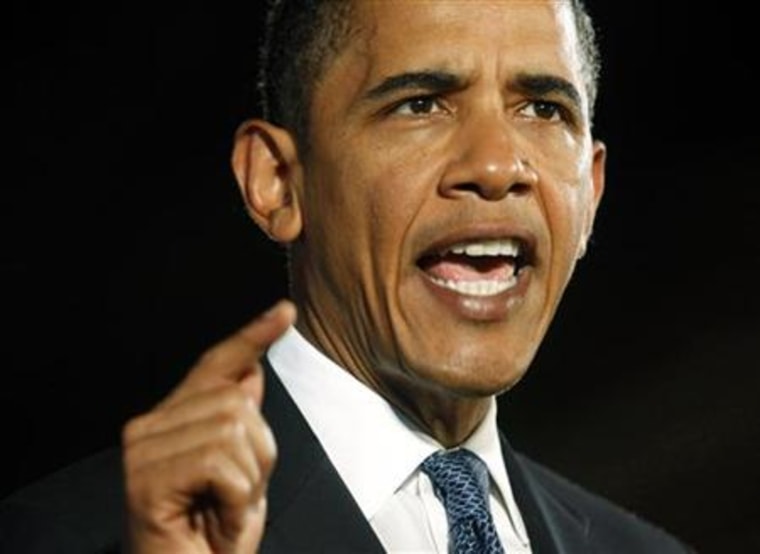Chastened by the Democratic Senate loss in the state of Massachusetts, President Barack Obama and congressional allies signaled Wednesday they will try to scale back his sweeping health care overhaul in an effort to at least keep parts of it alive.
A simpler, less ambitious bill emerged as an alternative only hours after the loss of the party's crucial 60th Senate seat forced the Democrats to slow their all-out drive to pass Obama's top domestic priority and reconsider all options.
The 60-vote Senate Democratic majority is needed to overcome Republican procedural obstacles aimed at defeating the legislation.
No decisions have been made, lawmakers said, but they laid out a new approach that could still include these provisions: limiting the ability of insurance companies to deny coverage to people with medical problems, allowing young adults to stay on their parents' policies, helping small businesses and low-income people pay insurance premiums and changing government health care for the elderly to encourage payment for quality care instead of sheer volume of services.
Obama urged lawmakers not to try to jam a bill through, but scale the proposal down to what he called "those elements of the package that people agree on."
"We know that we need insurance reform, that the health insurance companies are taking advantage of people," the president said in an interview with ABC News. "We know that we have to have some form of cost containment because if we don't then our budgets are going to blow up. And we know that small businesses are going to need help."
Another option, which called for the House to try to quickly pass the Senate version of the broader bill — bypassing the Senate problem created by the loss of the Massachusetts seat to Republican Scott Brown — appeared to be losing favor.
"That's a bitter pill for the House to swallow," said the No. 2 Senate Democrat, Dick Durbin.
"Full speed ahead is off the table," said Rep. Earl Pomeroy, a moderate Democrat. "We are still very much in the exercise of drawing meaning from the public disquiet."
Nevertheless, the option remained on the table and administration officials were working behind the scenes on the approach that would be the fastest and cleanest route to getting a bill to Obama, said a senior administration official, who spoke on condition of anonymity to more freely describe private talks.
In the House, Speaker Nancy Pelosi and Democratic leaders were gauging support for the idea among liberals and moderates. The initial reaction was not encouraging.
"If you ran that Senate bill right now on the House floor, I'll bet you you would not get 100 votes for it," said Rep. Bart Stupak, a Democrat.
It takes 218 votes to pass legislation. A majority of House Democrats oppose a tax on high-cost insurance plans in the Senate bill that labor unions, a core Democratic party constituency, see as a direct hit on their members. Stupak and other abortion opponents, backed by U.S. Roman Catholic bishops, say the Senate bill falls short in restricting taxpayer dollars for abortion.
A week ago, House and Senate Democrats were working out the differences in their respective bills, and a quick resolution seemed likely. But after Brown's upset victory secured the seat held by the late Sen. Edward M. Kennedy for the Republicans, feuding broke out.
Some Democratic senators suggested it was up to the House to save the day by passing the Senate bill.
"The Senate has passed the health care bill. The House has to make a decision how they want to proceed," said Sen. Patty Murray, a Democrat and a member of the leadership.
Republicans said that would make their day.
Trying to push through the Senate bill through would be a desperate ploy seen as such by voters, said Sen. John McCain, a leading Republican and Obama's 2008 presidential rival. "If they try to jam it through the House, they'll pay a very heavy price," McCain said.
